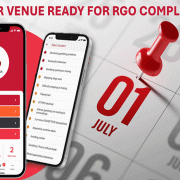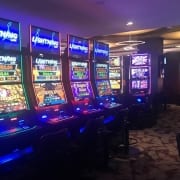NSW CRIME COMMISSION OUTLINES RECOMMENDATIONS TO STOP LAUNDERING
The Project Islington Inquiry was set up following a series of news media articles published in 2020 and 2021 that asserted that tens of millions of dollars of proceeds of crime, were being “laundered” through EGMs in licensed clubs and pubs, and that only a small proportion of pubs and clubs were complying with their money laundering prevention obligations. However, after investigation the report states:
“The Inquiry found that many of the individuals referred to publicly as engaged in high‐level money laundering had in fact been engaging in suspicious, but ultimately lawful, activities. Others, known to be engaged in crime that generates a large cash flow and who were using EGMs, were also investigated to ascertain whether they were laundering the proceeds of their offending via the machines in an effort to disguise the origins of the funds. Few were.”
The Inquiry did however find compelling evidence that drug dealers were gambling on a large scale via EGMs with the money obtained by their offending. They were not seeking to disguise or “wash” the origin of the cash but, instead, were using the cash proceeds of their crimes to gamble.
In 2021, Liquor & Gaming NSW (L&GNSW) developed an algorithm which used CMS data to attempt to flag suspicious transactions. While this identified a number of suspicious gaming activities, it also flagged a significant number of false positives. There is no data source in NSW that identifies criminal activity associated with EGMs
The main findings outlined in the report include:
- Some people involved in serious criminal offences, when found by NSWPF to be in possession of large amounts of cash, claimed that money in their possession was EGM winnings. The accuracy of these claims is difficult to refute due to limited evidence that law enforcement can rely on to confirm if an EGM win had occurred.
- The Inquiry’s assessment, based on analysis of several large datasets, reviews of law enforcement holdings, information obtained from coercive hearings, and interviews with both industry stakeholders and people involved in organised criminal activity, is that a large amount of ‘spending’ type money laundering – dealing with proceeds of crime – is occurring across pubs and clubs in NSW.
- Current detection systems successfully identify only some money laundering, more sophisticated money laundering cannot be detected.
- It was not possible to precisely quantify the proceeds of crime being laundered via EGMs in NSW, however the Inquiry’s assessment of this figure is that billions of the $95 billion EGM turnover for the 2020‐21 financial year was likely the proceeds of crime.
- Using EGMs to clean large quantities of dirty money is high risk and inefficient. Accordingly, while it is occurring, it is not widespread.
- The October 2022 amendments to Part 4AC of the Crimes Act 1900, particularly the introduction of a ‘proceeds of general crime’ offence, will support more successful prosecutions of people dealing with proceeds of crime in licenced venues in NSW.
- While only a small number of RCG holders have significant criminal histories including convictions for a prohibited drug, fraud and other high‐risk offences, there is no mechanism by which an RCG holder’s certification can be cancelled.
- The tipping off offence under the AML/CTF Act is misunderstood by many venues as restricting their ability to exclude patrons or revoke their membership, leading to money launderers not being reported or not being excluded from venues.
- Not all venues with a legal requirement to do so have an AML/CTF program and risk assessment tailored to their circumstances.
- Many venue staff lack knowledge and training on AML/CTF issues. While industry stakeholders expressed a willingness to comply with AML/CTF obligations, the training these venues deliver to employees and board members does not always provide an adequate understanding and awareness of money laundering, or the associated AML/CTF obligations.
- NSW has the highest load‐up limits associated with EGMs in Australia. This represents a money laundering vulnerability because larger amounts of dirty money can be loaded into an EGM.
- Some EGM audit reports, and player gambling histories lack the detail needed to identify suspicious behaviour.
The report identified eight recommendations that would assist in identifying criminal using the proceeds of crime and money laundering:
- Government introduce a mandatory cashless gaming system to minimise EGM related money laundering within pubs and clubs.
- Government, in consultation with industry and regulators, create a legislative or regulatory framework requiring certain standardised data be maintained for EGMs to better flag suspected money laundering.
- Government engage with industry to:
(a) identify ways that collection and analysis of EGM data could be enhanced for the purposes of money laundering identification at a venue level and to improve evidence available for prosecution.
(b) explore technical and policy/process solutions to better utilise data collected by EGMs; and
(c) identify ways of creating real‐time alerts for money laundering flags.
- The legislative and regulatory frameworks governing EGMs in NSW be amended to clarify that persons/entities with functions associated with EGMs must take steps to prevent money laundering.
- Government introduce a mechanism that enables government agencies or venues to recommend the cancellation/revocation of an RCG certification; and a mechanism for the regulator to revoke an RCG certification in appropriate circumstances.
- Government engage with industry and regulators to create a legislative or regulatory mechanism to support the exclusion of persons suspected of dealing with proceeds of crime from venues with EGMs, supplementing the existing rights of venues to exclude patrons from their premises.
- Government, in consultation with industry, update education requirements to include education on money laundering and increase the frequency of the training provided to venues from internal and external sources to support venues in discharging their obligations under the AML/CTF Act.
- Government work with industry to build the sector’s investment in AML/CTF training and education, and secure support for training from external sources
Despite negative media reports already occurring, there is a clear acknowledgment in the report that it is very difficult, with the information we have available to us in clubs and pubs, to identify “criminals” and their “proceeds of crime”. I guess it’s a case of every little bit helps, and clubs and hotels have a long history of supporting police in combating crime, but let’s see how long it takes to get some of these recommendations in place.
Read the full report here>>> Inquiry into Money Laundering via EGMs in Pubs and Clubs — NSW Crime Commission













